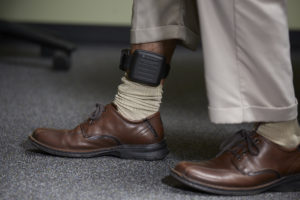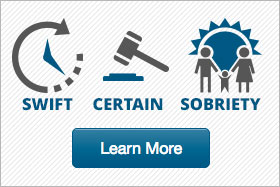
Hitting Close to Home
As a Program Development Manager and Court Liaison for SCRAM of California, I often witness how alcoholism ruins peoples’ lives. I have also seen my friend’s and family’s lives destroyed due to alcoholism. While I’m from a culture that driving under the influence is something “normal,” my father was adamant about the dangers of driving under the influence and would always remind me and my family about the consequences of getting behind the wheel drunk. He encouraged us to always have a designated sober driver. And as a child, I even remember my father and I going on bus rides to the store after he had a few drinks.
One night, over Memorial Day weekend in 2013, my father was legally crossing the road and an impaired driver drove through the intersection hitting him. He sustained head trauma and was killed by someone who decided to get behind the wheel intoxicated. This is something that was 100% preventable. I know how it feels to lose a loved one due to someone’s bad and unnecessary choice.
A Young Life Taken to Soon
In September of 2016, as the Dunn family was on the right shoulder of the freeway waiting to be helped after they ran out of gas, an SUV crashed into the back of their stalled car. Three children and their mom were rushed to the hospital. Unfortunately, three-year-old Elijah Dunn succumbed to his injuries and did not survive. The other children and mother were severely injured. Another life was unnecessarily taken away by a drunk driver.
The suspected drunk driver, 40-year-old Liliana Malihan, was arrested for driving under the influence and was released on bail a couple of months prior to the fatal crash. Records show Malihan was facing three charges, including driving under the influence and child cruelty. She was also driving on a temporary license the night of the crash. She was immediately arrested the night of the crash and has been formally charged with gross vehicular manslaughter while intoxicated and driving under the influence causing injury. On May 2017, Malihan was arrested again for alleged public intoxication. She is facing up to 11 years in prison if convicted.
24/7 Sobriety Program With SCRAM Continuous Alcohol Monitoring
 Crashes and tragedies resulting from repeat drunk drivers might be avoidable if offenders like Malihan were placed in a 24/7 Sobriety Program, a program that has reduced recidivism, cut jail and prison populations, and saved tax dollars by incorporating enhanced monitoring and real accountability.
Crashes and tragedies resulting from repeat drunk drivers might be avoidable if offenders like Malihan were placed in a 24/7 Sobriety Program, a program that has reduced recidivism, cut jail and prison populations, and saved tax dollars by incorporating enhanced monitoring and real accountability.
The program requires individuals arrested for or convicted of alcohol-involved offenses to submit to breathalyzer tests twice daily or wear a SCRAM Continuous Alcohol Monitoring bracelet at all times. Positive tests result in swift and certain, though modest, penalties, such as a day or two in jail. The approach is based on the idea that the certainty and rapidity, rather than the severity of the punishment more effectively deters problem drinking.
SCRAM Program Resources
South Dakota 24/7 Sobriety Program
Resources, varying from program statistics, overviews of the program, contact information and links to additional information.
Visit website »
Efficacy of Frequent Monitoring With Swift, Certain, and Modest Sanctions for Violations: Insights From South Dakota’s 24/7 Sobriety Project
American Public Health Association and RAND
View Abstract »





